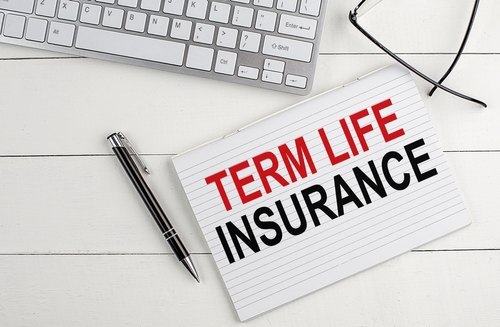Term life insurance comes in several different forms. Though, all of them are life insurance products that provide coverage for a set period of time. This is different from permanent life insurance, which lasts for an individual’s entire lifespan.
If you are curious about the different types of term life insurance, continue reading.
What is Term Life Insurance?
Term life insurance is a type of insurance that only provides coverage for a set period or term. The term is decided when you purchase the policy and plans are typically not renewable. Though, there are some instances when term life policyholders can renew a policy on a year-to-year basis.
Types of Term Life Insurance
While there isn’t much variance in the types of term life insurance available, these are some different plan categories you can compare:
Level-Premium Policies
Level-Premium policies provide a set amount of coverage for a timespan ranging between 10 and 30 years. With these plans, the death benefit amount and premium payments are fixed and therefore cannot be changed. Usually, the amount of time you wish to be insured and the level of coverage you expect will influence the total cost of the plan significantly.
Yearly Renewable Term Policies
If you are not keen on locking in a life insurance policy for the long term, you do have the option to purchase a yearly renewable term policy that does not have a limited term. They instead must be renewed each year, allowing policyholders greater flexibility in how long they seek coverage. Fortunately, renewals do not require one to submit evidence of their insurability, so you won’t have to worry about qualifying repeatedly.
The primary downside with this type of insurance is that the coverage price often rises as one ages. Therefore, the premiums can become overwhelming as you grow older.
Decreasing Term Policies
A decreasing term policy offers death benefits that gradually decline. Each year, the amount offered in the death benefit drops based on a predetermined schedule. Though, the premium payments do not function similarly. Instead, policyholders are expected to make the same payments for the entire span of their coverage term.
Is Term Life Insurance Right For Me?
Term life insurance has upsides and drawbacks. One of the benefits of term life insurance is that you can get higher levels of coverage at a lower cost when you are younger. The downside is that your policy will eventually expire if you outlive it. That means your investment doesn’t pay off in anything more than peace of mind.
Term life plans also don’t accrue cash value like permanent plans do, so you won’t be able to borrow or withdraw money from the plan. Though, it is often more reasonable for people who expect to have assets later in life to forgo permanent life plans and instead purchase term life insurance. This typically minimizes costs and ensures they have protections in place in case of an untimely death.
The Life Insurance Experts
All Things Insurance is staffed by an elite team of insurance professionals who are ready and waiting for your call. To discuss life insurance plans in your area, reach out to us now and receive a free quote and consultation!

